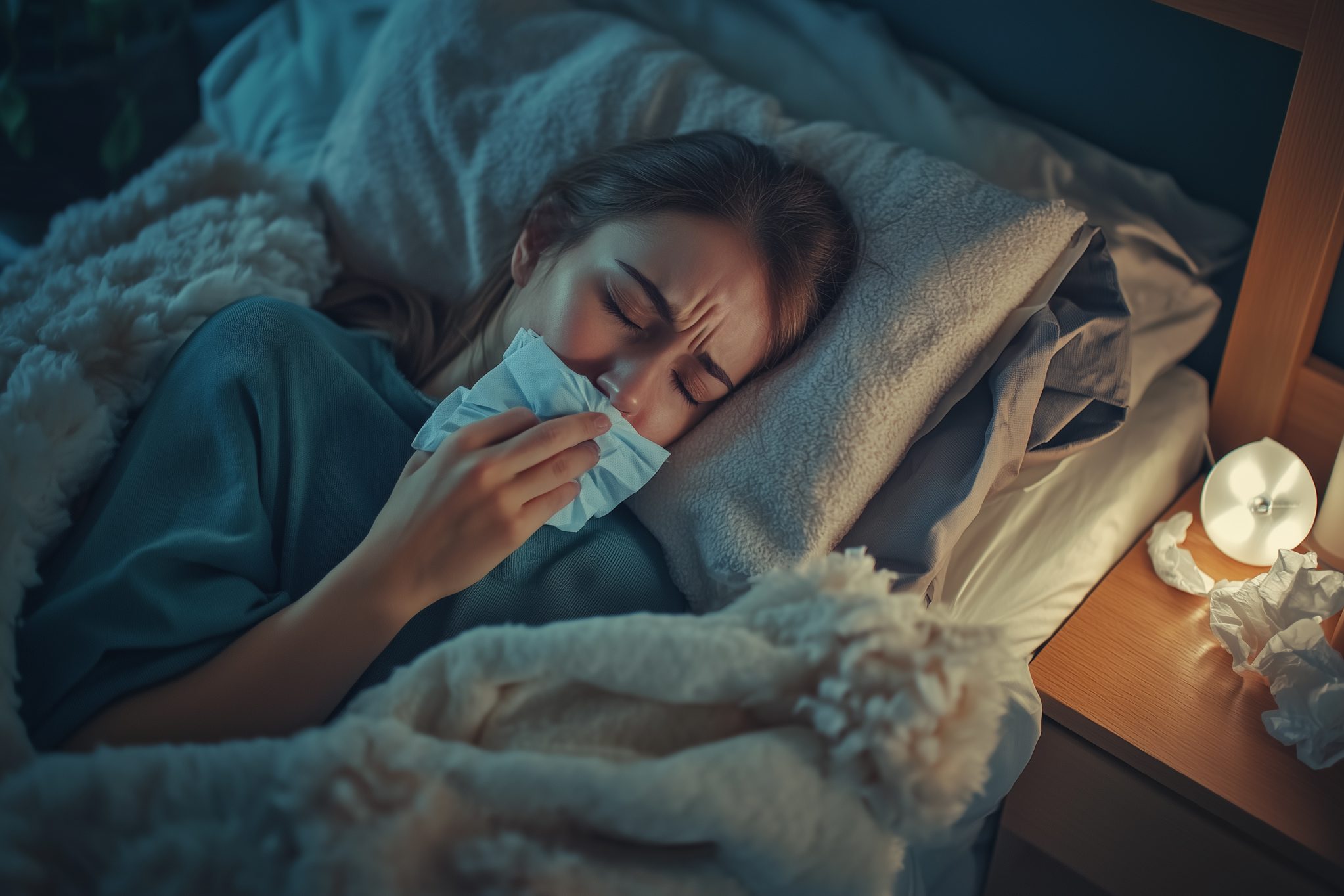
Does Poor Health Cause Sleeping Problems or Vice Versa?
The fascinating relationship between health and sleep, how they influence each other and what you can do to improve both.

Have you ever had one of those nights where you toss and turn, unable to sleep, and then the next day, you feel completely drained and lethargic? It’s no secret that sleep and health are related, but determining which influences the other remains a topic of debate. Does poor health cause sleeping problems, or is it the other way around? A simple answer: it’s a bit of both!
In this article, we’ll discuss the fascinating relationship between health and sleep, exploring how they influence each other and what you can do to improve both. Whether you’re battling sleepless nights or dealing with health issues, understanding this connection is key to getting the rest you need and maintaining a healthy lifestyle.
How Does Poor Health Affect Sleep?
Have you ever tried to sleep with a toothache? It’s like trying to relax on a bed of nails. Physical health issues, like chronic pain or respiratory problems, can turn your sweet dreams into nightmares. Conditions such as arthritis, asthma, and even heartburn can make it hard to find a comfortable sleeping position or keep you waking up through the night.
But it’s not just physical problems that mess with your sleep. Mental health plays a huge role, too. Anxiety and depression are notorious for causing insomnia. When your mind is racing with worries or drowning in sadness, getting a good night’s sleep can feel impossible.
Take depression, for instance. It can cause insomnia or make you sleep too much. Neither is great for your overall well-being. And then there’s anxiety, which often makes it hard to fall asleep or stay asleep.
To make matters worse, poor sleep can exacerbate these health issues, creating a vicious cycle. It’s like a never-ending game of “Which came first?” – health problems or sleep issues. But don’t worry. There are ways to break this cycle and get the rest you deserve.
How Poor Sleep Affects Health?
Now, let’s flip the script. We know that poor health can lead to sleepless nights, but did you know that poor sleep can wreak havoc on your health too? It’s true!
For starters, lack of sleep can take a serious toll on your physical health. Your immune system, for example, needs sleep to function properly. Without enough rest, you’re more likely to catch every bug that goes around.
Sleep deprivation can also lead to weight gain. When you’re tired, your body craves high-calorie foods to keep you going, and your willpower to resist those midnight snacks goes right out the window. Plus, your metabolism slows down, making it even harder to burn off those extra calories.
And let’s not forget about your heart. Poor sleep is linked to an increased risk of cardiovascular problems like high blood pressure and heart disease.
But the effects of poor sleep aren’t just physical. Your mental health takes a hit, too. Chronic sleep deprivation can lead to cognitive impairment, making it harder to concentrate, remember things, and make decisions. It can also contribute to mood disorders like depression and anxiety. It’s a vicious cycle: poor sleep leads to poor mental health, which in turn makes it harder to sleep.
So, next time you’re tempted to pull an all-nighter or skimp on sleep, remember that your health and sleep are closely linked. Your body and mind will thank you for hitting the hay at a reasonable hour.
Strategies to Improve Both Health and Sleep
Now that you know the answer, how can we improve our health and sleep? Don't worry; you don't have to become a health guru overnight. Small, manageable changes can make a big difference.
Strategies to Improve Health
First up, let's talk about lifestyle choices. Eating a balanced diet and regular exercise are crucial for health and sleep. You don't need to run a marathon or survive on kale smoothies, but incorporating more fruits, veggies, and whole grains into your diet and finding an exercise routine you enjoy can work wonders. Plus, exercise helps tire you out, making it easier to fall asleep.
Managing stress is also key. Chronic stress can wreak havoc on your health and keep you tossing and turning at night. Try incorporating relaxation techniques into your daily routine, like deep breathing exercises, meditation, or even a warm bath before bed.
Strategies to Improve Sleep
Creating a sleep-friendly environment is another game-changer. Keep your bedroom cool, dark, and quiet. Invest in a comfortable mattress and pillows – after all, you spend a third of your life in bed, so make it a comfy one! And for the love of all things sleepy, ditch the electronics at least an hour before bed. Unless it's for using sleep tracking apps like Pillow.
Good sleep hygiene is essential, too. Stick to a regular sleep schedule, even on weekends. Your body loves routine, so try to go to bed and wake up at the same time every day. And if you find yourself lying awake, staring at the ceiling, get up and do something relaxing until you feel sleepy.
So, what's the verdict? Does poor health cause sleeping problems, or is it the other way around?
As we've discovered, the answer is a bit of both. Health and sleep are inextricably linked, each influencing the other in a continuous cycle. By taking steps to improve your health, you can enhance your sleep quality, and by prioritizing good sleep, you can boost your overall health.

Written by
Dr Aqsa
As a Medical Doctor, Dr Aqsa, uses her knowledge to craft complex medical information that is understandable to the general public. For years, she has tried to improve health literacy and empower readers with valuable health knowledge through her articles, blog posts, and educational materials.
Download Pillow
Get help
Press & News
Legal
Connect
X (Twitter)
Company
Copyright © Neybox Digital Ltd.



